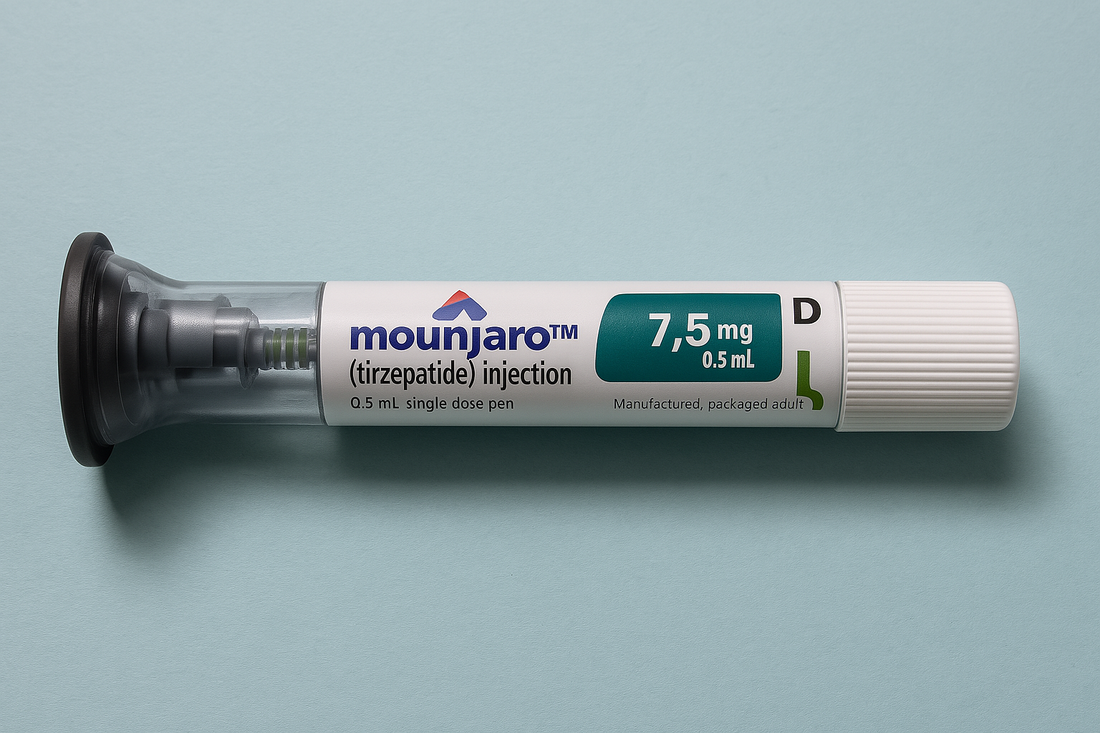
What Happens After Stopping Tirzepatide?
Share
Tirzepatide is a new medicine that has helped many people with obesity or overweight lose a lot of weight. But what happens when someone stops taking it? A new study from China followed people for 6 months after they finished a year of treatment with tirzepatide. Here’s what the study found and what it means for real life.
What is Tirzepatide?
Tirzepatide is a once-weekly injection that helps people feel full faster and eat less. It works by targeting two hormones, GIP and GLP-1, that control appetite and metabolism. In clinical trials, it led to impressive weight loss of over 20 percent in some people.
What Did the Study Do?
Researchers followed 152 people in China who had completed a 52-week clinical trial of tirzepatide. These people were divided into three groups based on what dose they took: 10 mg, 15 mg, or placebo (a dummy shot). After one year of treatment, they stopped taking the medicine. Then, the researchers tracked their weight, waist size, and health markers like cholesterol and blood sugar for another 26 weeks without the drug.
Key Findings About Weight Regain
After stopping tirzepatide, people did gain some weight back. But most still kept off a good amount of weight compared to when they first started. On average, from the beginning of the trial to six months after stopping the medicine:
- Those on tirzepatide 10 mg lost 8.7% of their body weight
- Those on 15 mg lost 10.6%
- The placebo group only lost 2.5%
Also, over 50% of people on the higher dose of tirzepatide still had at least 10% body weight loss even six months after stopping.
Waist Size Also Improved
Waist size matters because belly fat is linked to higher risk for heart disease and diabetes. In this study, people who took tirzepatide had waist reductions of over 10 cm, even after the follow-up period. This shows they lost a lot of harmful belly fat and kept much of it off.
Health Benefits Stayed Around
Even though people gained some weight back, many health improvements remained. Total cholesterol and LDL (bad cholesterol) were still better than before. Blood sugar control (measured by HbA1c) also stayed improved in many participants.
Lifestyle Habits Made a Difference
The study also looked at whether people stuck to healthy habits after stopping the drug. Sadly, only about 7% said they fully followed their lifestyle advice. But those who reported at least partial or full compliance with diet and exercise regained less weight. This shows that combining medication with healthy habits gives better long-term results.
Practical Advice for Real Life
Here are some tips based on the study results:
- Expect some weight regain after stopping medications like tirzepatide, but don’t be discouraged. Most people still kept off a large portion of the weight they lost.
- Stick to healthy habits like eating balanced meals and being physically active. Even partial effort helps reduce weight gain.
- Talk to your doctor about long-term weight management. Obesity is a chronic condition, and you may need ongoing support or medication to maintain your goals.
- Measure your waist, not just your weight. Reducing belly fat is key for better heart and metabolic health.
- Don’t rely on medication alone. Combining it with lifestyle changes gives the best and most lasting results.
Final Thoughts
This study gives hope and a realistic picture of what to expect after stopping a powerful weight-loss drug like tirzepatide. While some weight comes back, much of the benefit remains—especially if people stay committed to healthier habits. For anyone struggling with obesity, this is a reminder that long-term success is possible with the right tools and support.
